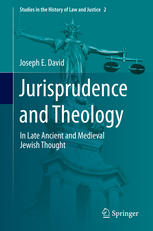

Most ebook files are in PDF format, so you can easily read them using various software such as Foxit Reader or directly on the Google Chrome browser.
Some ebook files are released by publishers in other formats such as .awz, .mobi, .epub, .fb2, etc. You may need to install specific software to read these formats on mobile/PC, such as Calibre.
Please read the tutorial at this link: https://ebookbell.com/faq
We offer FREE conversion to the popular formats you request; however, this may take some time. Therefore, right after payment, please email us, and we will try to provide the service as quickly as possible.
For some exceptional file formats or broken links (if any), please refrain from opening any disputes. Instead, email us first, and we will try to assist within a maximum of 6 hours.
EbookBell Team

4.4
72 reviewsThe book provides in depth studies of two epistemological aspects of Jewish Law (Halakhah) as the ‘Word of God’ – the question of legal reasoning and the problem of knowing and remembering.
- How different are the epistemological concerns of religious-law in comparison to other legal systems?
- In what ways are jurisprudential attitudes prescribed and dependent on theological presumptions?
- What specifies legal reasoning and legal knowledge in a religious framework?
The author outlines the rabbinic jurisprudential thought rooted in Talmudic literature which underwent systemization and enhancement by the Babylonian Geonim and the Andalusian Rabbis up until the twelfth century. The book develops a synoptic view on the growth of rabbinic legal thought against the background of Christian theological motifs on the one hand and Karaite and Islamic systemized jurisprudence on the other hand. It advances a perspective of legal-theology that combines analysis of jurisprudential reflections and theological views within a broad historical and intellectual framework.
The book advocates two approaches to the study of the legal history of the Halakhah: comparative jurisprudence and legal-theology, based on the understanding that jurisprudence and theology are indispensable and inseparable pillars of legal praxis.